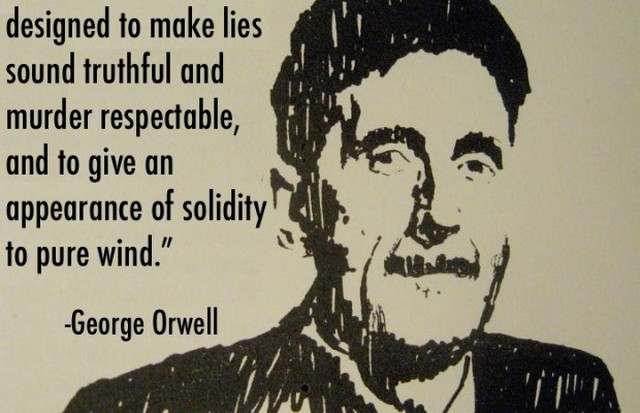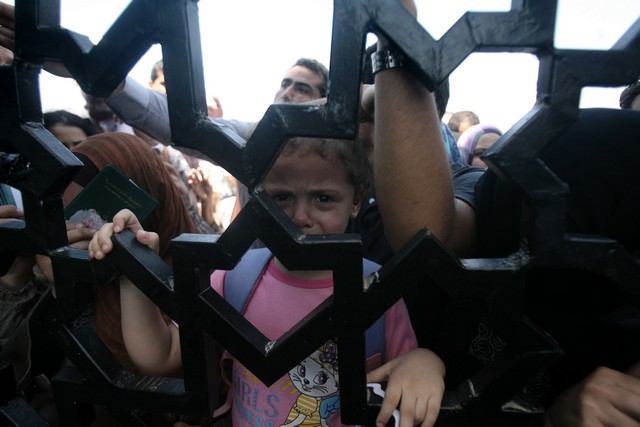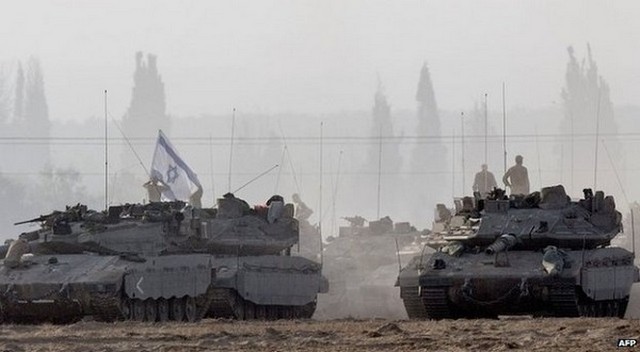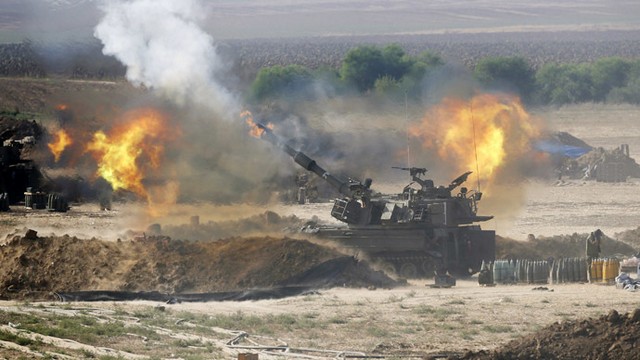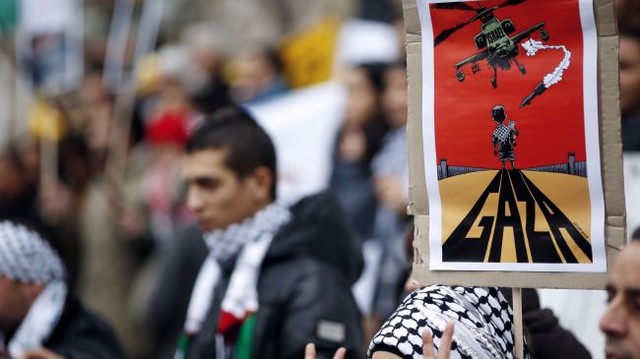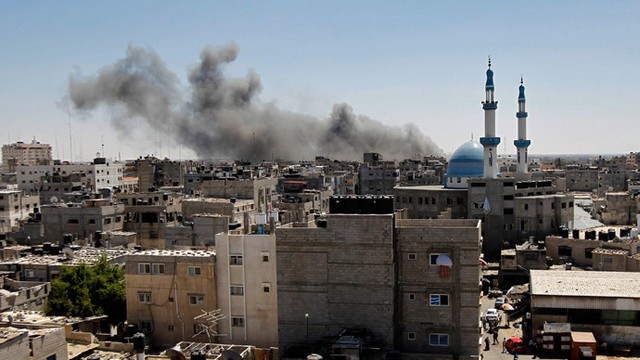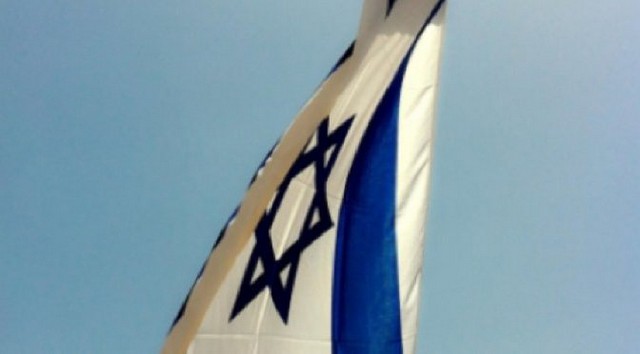By John Pilger
The other night, I saw George Orwells’s 1984 performed on the London stage. Although crying out for a contemporary interpretation, Orwell’s warning about the future was presented as a period piece: remote, unthreatening, almost reassuring. It was as if Edward Snowden had revealed nothing, Big Brother was not now a digital eavesdropper and Orwell himself had never said, “To be corrupted by totalitarianism, one does not have to live in a totalitarian country.”
Acclaimed by critics, the skilful production was a measure of our cultural and political times. When the lights came up, people were already on their way out. They seemed unmoved, or perhaps other distractions beckoned. “What a mindfuck,” said the young woman, lighting up her phone.
As advanced societies are de-politicised, the changes are both subtle and spectacular. In everyday discourse, political language is turned on its head, as Orwell prophesised in 1984. “Democracy” is now a rhetorical device. Peace is “perpetual war”. “Global” is imperial. The once hopeful concept of “reform” now means regression, even destruction. “Austerity” is the imposition of extreme capitalism on the poor and the gift of socialism for the rich: an ingenious system under which the majority service the debts of the few.
In the arts, hostility to political truth-telling is an article of bourgeois faith. “Picasso’s red period,” says an Observer headline, “and why politics don’t make good art.” Consider this in a newspaper that promoted the bloodbath in Iraq as a liberal crusade. Picasso’s lifelong opposition to fascism is a footnote, just as Orwell’s radicalism has faded from the prize that appropriated his name.
A few years ago, Terry Eagleton, then professor of English literature at Manchester University, reckoned that “for the first time in two centuries, there is no eminent British poet, playwright or novelist prepared to question the foundations of the western way of life”. No Shelley speaks for the poor, no Blake for utopian dreams, no Byron damns the corruption of the ruling class, no Thomas Carlyle and John Ruskin reveal the moral disaster of capitalism. William Morris, Oscar Wilde, HG Wells, George Bernard Shaw have no equivalents today. Harold Pinter was the last to raise his voice. Among the insistent voices of consumer- feminism, none echoes Virginia Woolf, who described “the arts of dominating other people … of ruling, of killing, of acquiring land and capital”.
At the National Theatre, a new play, Great Britain, satirises the phone hacking scandal that has seen journalists tried and convicted, including a former editor of Rupert Murdoch’s News of the World. Described as a “farce with fangs [that] puts the whole incestuous [media] culture in the dock and subjects it to merciless ridicule”, the play’s targets are the “blessedly funny” characters in Britain’s tabloid press. That is well and good, and so familiar. What of the non-tabloid media that regards itself as reputable and credible, yet serves a parallel role as an arm of state and corporate power, as in the promotion of illegal war?
The Leveson inquiry into phone hacking glimpsed this unmentionable. Tony Blair was giving evidence, complaining to His Lordship about the tabloids’ harassment of his wife, when he was interrupted by a voice from the public gallery. David Lawley-Wakelin, a film-maker, demanded Blair’s arrest and prosecution for war crimes. There was a long pause: the shock of truth. Lord Leveson leapt to his feet and ordered the truth-teller thrown out and apologised to the war criminal. Lawley-Wakelin was prosecuted; Blair went free.
Blair’s enduring accomplices are more respectable than the phone hackers. When the BBC arts presenter, Kirsty Wark, interviewed him on the tenth anniversary of his invasion of Iraq, she gifted him a moment he could only dream of; she allowed him to agonise over his “difficult” decision on Iraq rather than call him to account for his epic crime. This evoked the procession of BBC journalists who in 2003 declared that Blair could feel “vindicated”, and the subsequent, “seminal” BBC series, The Blair Years, for which David Aaronovitch was chosen as the writer, presenter and interviewer. A Murdoch retainer who campaigned for military attacks on Iraq, Libya and Syria, Aaronovitch fawned expertly.
Since the invasion of Iraq – the exemplar of an act of unprovoked aggression the Nuremberg prosecutor Robert Jackson called “the supreme international crime differing only from other war crimes in that it contains within itself the accumulated evil of the whole” — Blair and his mouthpiece and principal accomplice, Alastair Campbell, have been afforded generous space in the Guardian to rehabilitate their reputations. Described as a Labour Party “star”, Campbell has sought the sympathy of readers for his depression and displayed his interests, though not his current assignment as advisor, with Blair, to the Egyptian military tyranny.
As Iraq is dismembered as a consequence of the Blair/Bush invasion, a Guardian headline declares: “Toppling Saddam was right, but we pulled out too soon”. This ran across a prominent article on 13 June by a former Blair functionary, John McTernan, who also served Iraq’s CIA installed dictator Iyad Allawi. In calling for a repeat invasion of a country his former master helped destroy , he made no reference to the deaths of at least 700,000 people, the flight of four million refugees and sectarian turmoil in a nation once proud of its communal tolerance.
“Blair embodies corruption and war,” wrote the radical Guardian columnist Seumas Milne in a spirited piece on 3 July. This is known in the trade as “balance”. The following day, the paper published a full-page advertisement for an American Stealth bomber. On a menacing image of the bomber were the words: “The F-35. GREAT For Britain”. This other embodiment of “corruption and war” will cost British taxpayers £1.3 billion, its F-model predecessors having slaughtered people across the developing world.
In a village in Afghanistan, inhabited by the poorest of the poor, I filmed Orifa, kneeling at the graves of her husband, Gul Ahmed, a carpet weaver, seven other members of her family, including six children, and two children who were killed in the adjacent house. A “precision” 500-pound bomb fell directly on their small mud, stone and straw house, leaving a crater 50 feet wide. Lockheed Martin, the plane’s manufacturer’s, had pride of place in the Guardian’s advertisement.
The former US secretary of state and aspiring president of the United States, Hillary Clinton, was recently on the BBC’s Women’s Hour, the quintessence of media respectability. The presenter, Jenni Murray, presented Clinton as a beacon of female achievement. She did not remind her listeners about Clinton’s profanity that Afghanistan was invaded to “liberate” women like Orifa. She asked Clinton nothing about her administration’s terror campaign using drones to kill women, men and children. There was no mention of Clinton’s idle threat, while campaigning to be the first female president, to “eliminate” Iran, and nothing about her support for illegal mass surveillance and the pursuit of whistle-blowers.
Murray did ask one finger-to-the-lips question. Had Clinton forgiven Monica Lewinsky for having an affair with husband? “Forgiveness is a choice,” said Clinton, “for me, it was absolutely the right choice.” This recalled the 1990s and the years consumed by the Lewinsky “scandal”. President Bill Clinton was then invading Haiti, and bombing the Balkans, Africa and Iraq. He was also destroying the lives of Iraqi children; Unicef reported the deaths of half a million Iraqi infants under the age of five as a result of an embargo led by the US and Britain.
The children were media unpeople, just as Hillary Clinton’s victims in the invasions she supported and promoted – Afghanistan, Iraq, Yemen, Somalia — are media unpeople. Murray made no reference to them. A photograph of her and her distinguished guest, beaming, appears on the BBC website.
In politics as in journalism and the arts, it seems that dissent once tolerated in the “mainstream” has regressed to a dissidence: a metaphoric underground. When I began a career in Britain’s Fleet Street in the 1960s, it was acceptable to critique western power as a rapacious force. Read James Cameron’s celebrated reports of the explosion of the Hydrogen bomb at Bikini Atoll, the barbaric war in Korea and the American bombing of North Vietnam. Today’s grand illusion is of an information age when, in truth, we live in a media age in which incessant corporate propaganda is insidious, contagious, effective and liberal.
In his 1859 essay On Liberty, to which modern liberals pay homage, John Stuart Mill wrote: “Despotism is a legitimate mode of government in dealing with barbarians, provided the end be their improvement, and the means justified by actually effecting that end.” The “barbarians” were large sections of humanity of whom “implicit obedience” was required. “It’s a nice and convenient myth that liberals are peacemakers and conservatives the warmongers,” wrote the historian Hywel Williams in 2001, “but the imperialism of the liberal way may be more dangerous because of its open-ended nature: its conviction that it represents a superior form of life.” He had in mind a speech by Blair in which the then prime minister promised to “reorder the world around us” according to his “moral values”.
Richard Falk, the respected authority on international law and the UN Special Rapporteur on Palestine, once described a “a self-righteous, one-way, legal/moral screen [with] positive images of western values and innocence portrayed as threatened, validating a campaign of unrestricted political violence”. It is “so widely accepted as to be virtually unchallengeable”.
Tenure and patronage reward the guardians. On BBC Radio 4, Razia Iqbal interviewed Toni Morrison, the African-American Nobel Laureate. Morrison wondered why people were “so angry” with Barack Obama, who was “cool” and wished to build a “strong economy and health care”. Morrison was proud to have talked on the phone with her hero, who had read one of her books and invited her to his inauguration.
Neither she nor her interviewer mentioned Obama’s seven wars, including his terror campaign by drone, in which whole families, their rescuers and mourners have been murdered. What seemed to matter was that a “finely spoken” man of colour had risen to the commanding heights of power. In The Wretched of the Earth, Frantz Fanon wrote that the “historic mission” of the colonised was to serve as a “transmission line” to those who ruled and oppressed. In the modern era, the employment of ethnic difference in western power and propaganda systems is now seen as essential. Obama epitomises this, though the cabinet of George W. Bush – his warmongering clique – was the most multiracial in presidential history.
As the Iraqi city of Mosul fell to the jihadists of ISIS, Obama said, “The American people made huge investments and sacrifices in order to give Iraqis the opportunity to chart a better destiny.” How “cool” is that lie? How “finely spoken” was Obama’s speech at the West Point military academy on 28 May. Delivering his “state of the world” address at the graduation ceremony of those who “will take American leadership” across the world, Obama said, “The United States will use military force, unilaterally if necessary, when our core interests demand it. International opinion matters, but America will never ask permission …”
In repudiating international law and the rights of independent nations, the American president claims a divinity based on the might of his “indispensable nation”. It is a familiar message of imperial impunity, though always bracing to hear. Evoking the rise of fascism in the 1930s, Obama said, “I believe in American exceptionalism with every fibre of my being.” Historian Norman Pollack wrote: “For goose-steppers, substitute the seemingly more innocuous militarisation of the total culture. And for the bombastic leader, we have the reformer manqué, blithely at work, planning and executing assassination, smiling all the while.”
In February, the US mounted one of its “colour” coups against the elected government in Ukraine, exploiting genuine protests against corruption in Kiev. Obama’s national security adviser Victoria Nuland personally selected the leader of an “interim government”. She nicknamed him “Yats”. Vice President Joe Biden came to Kiev, as did CIA Director John Brennan. The shock troops of their putsch were Ukrainian fascists.
For the first time since 1945, a neo-Nazi, openly anti-Semitic party controls key areas of state power in a European capital. No Western European leader has condemned this revival of fascism in the borderland through which Hitler’s invading Nazis took millions of Russian lives. They were supported by the Ukrainian Insurgent Army (UPA), responsible for the massacre of Jews and Russians they called “vermin”. The UPA is the historical inspiration of the present-day Svoboda Party and its fellow-travelling Right Sector. Svoboda leader Oleh Tyahnybok has called for a purge of the “Moscow-Jewish mafia” and “other scum”, including gays, feminists and those on the political left.
Since the collapse of the Soviet Union, the United States has ringed Russia with military bases, nuclear warplanes and missiles as part of its Nato Enlargement Project. Reneging on a promise made to Soviet President Mikhail Gorbachev in 1990 that Nato would not expand “one inch to the east”, Nato has, in effect, militarily occupied eastern Europe. In the former Soviet Caucasus, Nato’s expansion is the biggest military build-up since the Second World War.
A Nato Membership Action Plan is Washington’s gift to the coup-regime in Kiev. In August, “Operation Rapid Trident” will put American and British troops on Ukraine’s Russian border and “Sea Breeze” will send US warships within sight of Russian ports. Imagine the response if these acts of provocation, or intimidation, were carried out on America’s borders.
In reclaiming Crimea — which Nikita Kruschev illegally detached from Russia in 1954 – the Russians defended themselves as they have done for almost a century. More than 90 per cent of the population of Crimea voted to return the territory to Russia. Crimea is the home of the Black Sea Fleet and its loss would mean life or death for the Russian Navy and a prize for Nato. Confounding the war parties in Washington and Kiev, Vladimir Putin withdrew troops from the Ukrainian border and urged ethnic Russians in eastern Ukraine to abandon separatism.
In Orwellian fashion, this has been inverted in the west to the “Russian threat”. Hillary Clinton likened Putin to Hitler. Without irony, right-wing German commentators said as much. In the media, the Ukrainian neo-Nazis are sanitised as “nationalists” or “ultra nationalists”. What they fear is that Putin is skilfully seeking a diplomatic solution, and may succeed. On 27 June, responding to Putin’s latest accommodation – his request to the Russian Parliament to rescind legislation that gave him the power to intervene on behalf of Ukraine’s ethnic Russians – Secretary of State John Kerry issued another of his ultimatums. Russia must “act within the next few hours, literally” to end the revolt in eastern Ukraine. Notwithstanding that Kerry is widely recognised as a buffoon, the serious purpose of these “warnings” is to confer pariah status on Russia and suppress news of the Kiev regime’s war on its own people.
A third of the population of Ukraine are Russian-speaking and bilingual. They have long sought a democratic federation that reflects Ukraine’s ethnic diversity and is both autonomous and independent of Moscow. Most are neither “separatists” nor “rebels” but citizens who want to live securely in their homeland. Separatism is a reaction to the Kiev junta’s attacks on them, causing as many as 110,000 (UN estimate) to flee across the border into Russia. Typically, they are traumatised women and children.
Like Iraq’s embargoed infants, and Afghanistan’s “liberated” women and girls, terrorised by the CIA’s warlords, these ethnic people of Ukraine are media unpeople in the west, their suffering and the atrocities committed against them minimised, or suppressed. No sense of the scale of the regime’s assault is reported in the mainstream western media. This is not unprecedented. Reading again Phillip Knightley’s masterly The First Casualty: the war correspondent as hero, propagandist and mythmaker, I renewed my admiration for the Manchester Guardian’s Morgan Philips Price, the only western reporter to remain in Russia during the 1917 revolution and report the truth of a disastrous invasion by the western allies. Fair-minded and courageous, Philips Price alone disturbed what Knightley calls an anti-Russian “dark silence” in the west.
On 2 May, in Odessa, 41 ethnic Russians were burned alive in the trade union headquarters with police standing by. There is horrifying video evidence. The Right Sector leader Dmytro Yarosh hailed the massacre as “another bright day in our national history”. In the American and British media, this was reported as a “murky tragedy” resulting from “clashes” between “nationalists” (neo-Nazis) and “separatists” (people collecting signatures for a referendum on a federal Ukraine). The New York Times buried it, having dismissed as Russian propaganda warnings about the fascist and anti-Semitic policies of Washington’s new clients. The Wall Street Journal damned the victims – “Deadly Ukraine Fire Likely Sparked by Rebels, Government Says”. Obama congratulated the junta for its “restraint”.
On 28 June, the Guardian devoted most of a page to declarations by the Kiev regime’s “president”, the oligarch Petro Poroshenko. Again, Orwell’s rule of inversion applied. There was no putsch; no war against Ukraine’s minority; the Russians were to blame for everything. “We want to modernise my country,” said Poroshenko. “We want to introduce freedom, democracy and European values. Somebody doesn’t like that. Somebody doesn’t like us for that.”
According to his report, the Guardian’s reporter, Luke Harding, did not challenge these assertions, or mention the Odessa atrocity, the regime’s air and artillery attacks on residential areas, the killing and kidnapping of journalists, the firebombing of an opposition newspaper and his threat to “free Ukraine from dirt and parasites”. The enemy are “rebels”, “militants”, “insurgents”, “terrorists” and stooges of the Kremlin. Summon from history the ghosts of Vietnam, Chile, East Timor, southern Africa, Iraq; note the same tags. Palestine is the lodestone of this unchanging deceit. On 11 July, following the latest Israeli, American equipped slaughter in Gaza – 80 people including six children in one family — an Israeli general writes in the Guardian under the headline, “A necessary show of force”.
In the 1970s, I met Leni Riefenstahl and asked her about her films that glorified the Nazis. Using revolutionary camera and lighting techniques, she produced a documentary form that mesmerised Germans; it was her Triumph of the Will that reputedly cast Hitler’s spell. I asked her about propaganda in societies that imagined themselves superior. She replied that the “messages” in her films were dependent not on “orders from above” but on a “submissive void” in the German population. “Did that include the liberal, educated bourgeoisie?” I asked. “Everyone,” she replied, “and of course the intelligentsia.”
John Pilger is the author of Freedom Next Time. All his documentary films can be viewed free on his website
03 August, 2014
Johnpilger.com

